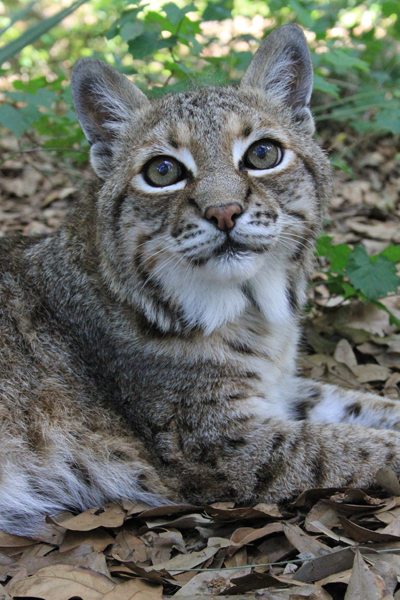Be an Advocat
Put Your Claws into the Cause
AdvoCats are people who can volunteer for Big Cat Rescue even if they cannot put in the minimum 4 hours a week on site. If you would like to help save big cats from where you live, please join us online!
Join our AdvoCat Facebook group at https://www.facebook.com/groups/BCRAdvoCats/
We would love to have you join us on social sites too:
Twitter @BigCatRescue
SnapChat @BigCatRescuer
TikTok @bigcatrescue.org
Never miss an important notice about exotic cats! Subscribe to our feed.
How to be an “AdvoCat”
We use the term “AdvoCat” to describe people who care enough about the plight of big cats to add their voice to help stop the abuse of big cats. Below are just some of the many ways you can take action as an AdvoCat! Our continued successes prove the power of many people expressing their opinion. You are not helpless – your voice CAN make a real difference for animals! Questions? Email advocat@bigcatrescue.org.
Take Action – Visit CatLaws.com

CatLaws.com is the website where Big Cat Rescue’s system tracks relevant laws, venues allowing abusive exhibits, and other issues where your voice can make a difference. Visit the site periodically to see if there are any new issues that require your action!
Take Action – Abusive Exhibits or Unaccredited Zoos
When visiting www.CatLaws.com, you will be shown several links that you can click that will enable you to take action to protect the welfare of Big Cats. One of the ways that we do this is by identifying Abusive Exhibits. We identify malls, fairs, and other venues that permit abusive displays. When a venue is identified, we may send an action alert asking AdvoCats to email that venue through our system to object to the exhibit. Even if you are not in that geographic market, the volume of emails shows the venue that many members of the general public, i.e. their customers, oppose this abuse. While the exhibit may draw visitors who are not aware of the suffering that these exhibits inflict, the emails show that the venue is offending other customers, which is bad business. Dozens of venues have agreed to cancel these exhibits, or not have them in the future, after receiving thousands of emails from people like you who care.
Be sensitive to your own patronage of places that add to the problem. When you see a cub or adult tiger exhibit, voice your objections to the management of the venue. Nothing is as powerful as real customers saying “I won’t shop here anymore”. If you witness a traveling exhibit, particularly one with cubs, report it to info@BigCatRescue.org. If you believe you have witness abuse, neglect, or questionable treatment of an animal, please submit a complaint to the USDA.
When you want to visit an animal facility, make sure it is an accredited zoo or real sanctuary, not a roadside zoo or pseudo-sanctuary where your patronage just adds to the problem.
Vote for Legislators who Support Animal Protection Legislation
At election time, support candidates who care about animals. You can see incumbents’ voting records on animal issues in the “Scorecard” maintained by the Humane Society Legislative Fund at www.hslf.org/humanescorecard/
Preventing cruelty to animals should not be a partisan issue. It should be an American issue.
Submit a Letter to the Editor (LTE)
A Letter to the Editor is a letter sent to your local news publication about an issue of concern. LTEs are effective ways to educate the public about a topic and encourage engagement from both readers and your elected officials. AdvoCats may submit LTEs to speak out against a traveling circus that intends on exhibiting in your town.
The first step is to identify the submission requirements for getting an LTE published in your local paper. Most publications provide this information online in the Editorial section of their website. LTEs are typically 200 words or less and may be submitted online or mailed in. Your LTE should clearly express your position on an issue or piece of legislation (including bill number). It should tell readers about the issue, what they can do to help, and include a call to action. Remember to name your legislator if you’re thanking them or seeking their support. For example, “As a constituent, I urge Senator Jane Doe to cosponsor H.R. 1380, the Big Cat Public Safety Act.”
Tell Your Friends
There is power in numbers! Please share this information with people you know. Ask them to join as an AdvoCat and to avoid patronizing abusive venues that exhibit exotic cats. Urge them to take the more proactive steps above and donate if they can.
Thank you so much for your interest in adding your voice to stop the abuse of exotic cats! Become an AdvoCat today!
If you are able and interested in supporting our work to save big cats financially, please click here to see donation options. For other ways to help at no cost click here.


